Inside the power battles at the heart of the new Manchester United
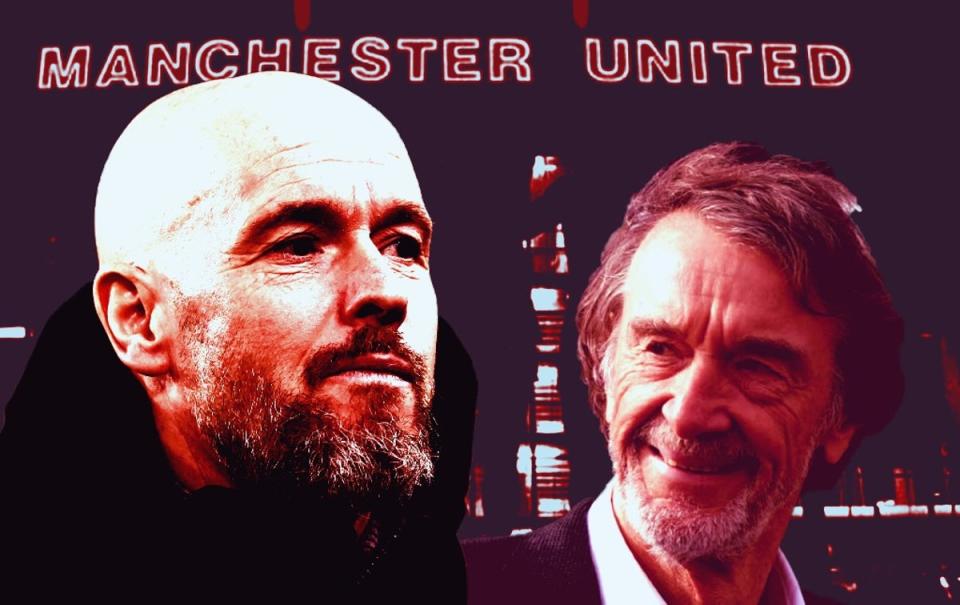
Over the past few months, Jean-Claude Blanc has kept a line of dialogue open with Zinedine Zidane. Sir Jim Ratcliffe’s Ineos and Blanc, the chief executive of its sports arm, have long been admirers of the former Real Madrid manager. That level of Champions League success is naturally what Ineos is aspiring to at Manchester United.
This isn’t to say that Zidane is set to take over at Old Trafford in the summer, but it is a connection the group is naturally keeping open.
It similarly feeds into the feeling around Erik ten Hag’s future. Virtually everyone is saying it is up in the air. Ineos is monitoring everything and consulting, and will make the decision it best sees fit.
That will, of course, be based on much more than one game but last weekend’s home defeat to Fulham was all the more unfortunate given it came at a crucial time, just before Sunday’s Manchester derby. The 2-1 loss was all the worse since it felt such an abrupt regression when everything had been going much better.
Those at Carrington and Old Trafford say there has been an immense improvement in focus since January. Everything is sharper. Even the announcement of Ratcliffe’s very purchase made a difference. There was a new air. Subsequent meetings with staff have furthered the feeling of a fully focused football club again.
The atmosphere beforehand, according to a few figures, was “like the civil service”. Such a statement is itself quite the argument against the kind of competitiveness the capitalism practiced by the Glazers is supposed to condition, yet it certainly spoke to a sense of drift at United. So much at the club felt lacking in direction. That inevitably transferred into the squad, where Ratcliffe has already been critical of long-term recruitment. The most familiar argument is that it has left every manager with patchwork squads. One recent signing was struck by “the lack of strong characters in the group”. Another squad member was conscious that it was only ever three players who seemed to be making noise or shouting at training.
That was something else that started to change in January. The very knowledge that Ineos is watching everything brought a greater urgency. There was an energy to the January break, which had translated into an encouraging run of wins.
It offered optimism about how quickly things can start to change as soon as you make the right moves. The swift and impressively discreet appointment of Omar Berrada as chief executive gave form to an idea for the club, with several other decisions flowing from there.
It makes the timing of this Manchester derby all the more symbolic. Many of United’s current moves, right up to the whole technical plan, were influenced by Manchester City. It’s funny how football can work out, and how circular it can be.
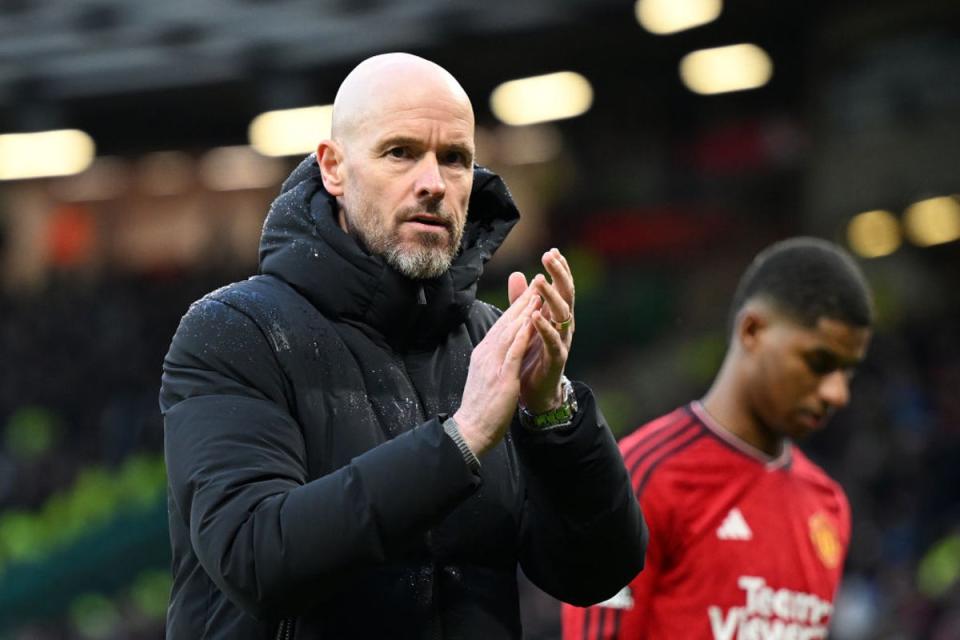
When City’s Abu Dhabi hierarchy were essentially trying to build the perfect club from almost a blank slate back in 2008, administrator Brian Marwood used to make a point of driving past Old Trafford to see what excellence looked like. The phrase they used with every single appointment from there on in was “best in class”.
Ratcliffe used precisely those words in his briefing with media last week, while repeatedly referencing how City do things. Berrada will now bring some of that expertise from his role as chief operations officer at the Abu Dhabi-owned club.
The real key is quite simple to outline but can be difficult to implement: first deciding on a club ideology with everything flowing from there. A clear structure is decided around that, with all the right appointments aligned within it. This is what City and Liverpool have excelled in. So did Juventus when Blanc was there.
United have started to do this, as one of the most prominent if contentious examples illustrates. The hierarchy have long seen Dan Ashworth as the perfect appointment for technical director. Now, since Ashworth has agreed to join from Newcastle United – albeit with a lot of negotiation to go – the club have decided to have a head of recruitment report to him. Processes are ongoing for such appointments.
It all sounds like it should be so easy, especially when you have United’s cache and, well, cash. The wonder is why it took Ratcliffe to start getting this in order. It comes back to the issue with the Glazers. It reflects the lack of proper expertise on the football side since Sir Alex Ferguson retired.
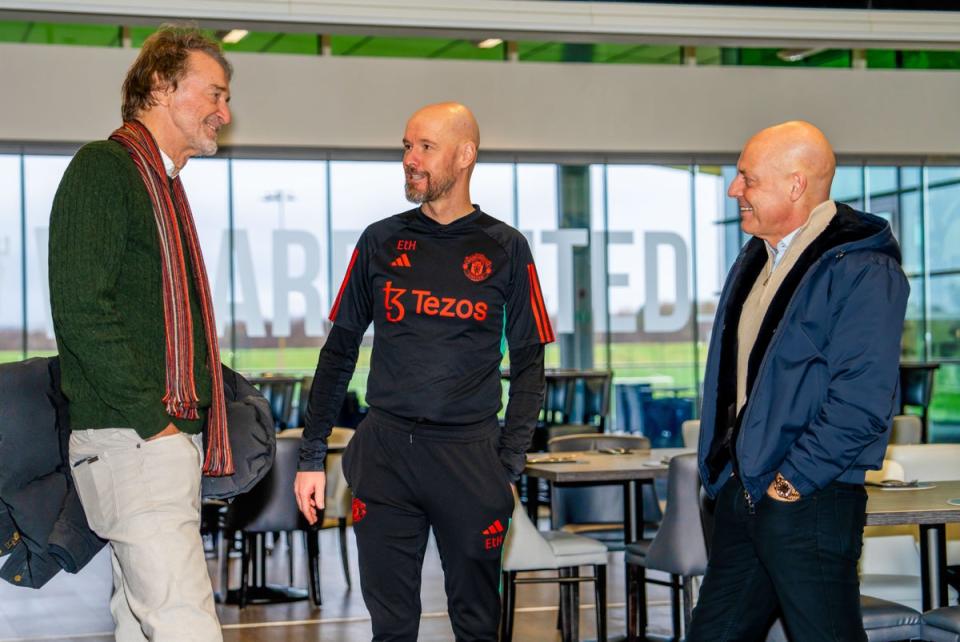
It was put to senior figures over half a decade ago why they didn’t follow the model at City and Liverpool, where there was a defined ideology guiding everything. The answer at the time was that United preferred a more flexible plan, within a broader structure. It just happened to be so broad that opposition sides repeatedly walked through gaps in the team to bring some results to the level of farce. That has happened a few times with Ten Hag, which is why he could yet be another moved on.
For all of United’s long-term problems, one common view is that a club of that magnitude can quickly be fixed to become challengers in the space of three windows. That’s what happened at Liverpool. That’s what happens when you have the right people in place.
The latter, however, is also where this won’t be all light and optimism. Tough decisions will be made, way beyond the manager.
There is already talk within the club about the possibility of 80 to 100 voluntary redundancies. A core of players will be jettisoned. Anthony Martial’s contract is unlikely to be extended, and it could be a symbolic exit given the once-precocious talent has come to almost personify an era at United. The club would listen to offers for Antony but an exit is understood to be complicated due to profit and sustainability effects from the way the initial expensive deal from Ajax was constructed.
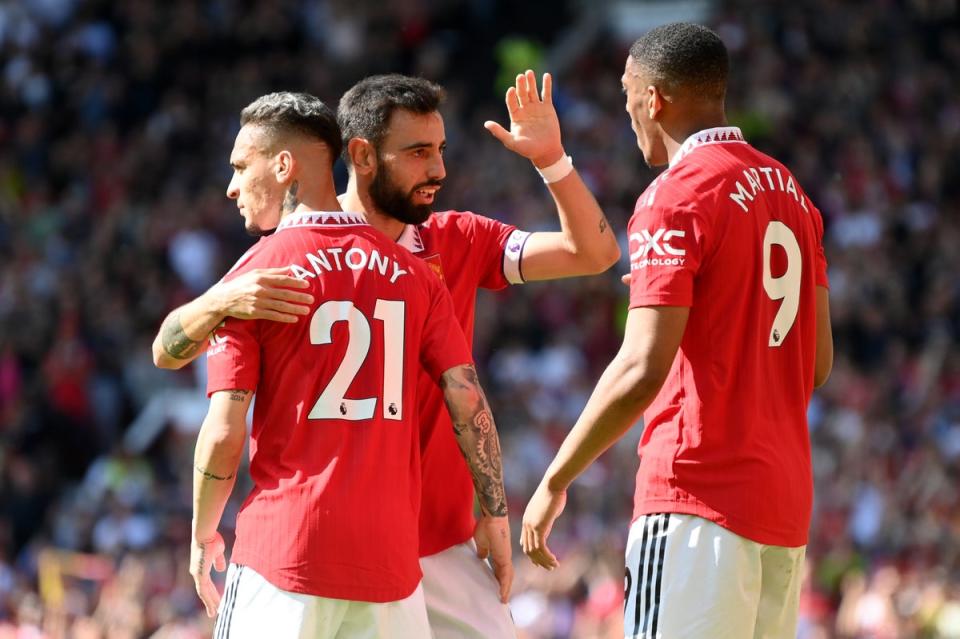
The new hierarchy have also paid particular attention to injuries and fitness. There was immense frustration at how Rasmus Hojlund picked up a muscle problem just as he was hitting supreme form. At the same time, the fact that defeat against Fulham immediately followed seemed to sum up this recurring issue with Ten Hag and how a supposedly fixed tactical ideology is completely dependent on specific players. One of the reasons he was appointed was that United would persist with the same ideology regardless. Instead, long-term injuries to players like Lisandro Martinez have completely undermined his approach.
The conditioning departments may end up seeing the biggest overhaul of all, which is perhaps no surprise given that fitness and nutrition are obsessions of Sir Dave Brailsford.
This is also where the story gets more contentious since there is debate within the game over some of the highest-profile staff members. There have already been grumblings about how Berrada was at Manchester City throughout the period covered by a series of investigations for alleged breaches of financial control rules, with Blanc also at Paris Saint-Germain when they had two similar cases. Both City and PSG agreed settlements with Uefa in 2014, before further investigations.
On top of that, one rival Premier League figure expressed surprise that “more hasn’t been made” of Brailsford’s history with Team Sky.
Parliament’s digital, culture, media and sport select committee drew the damning conclusion in 2018 that the guru’s team had cynically abused the anti-doping system to allow the administration of performance-enhancing drugs. That involved the claim that Team Sky had obtained therapeutic use exemption forms to allow triamcinolone to be used.
This was last week directly put to Ratcliffe, whose answer was evasive. “That for me was all nonsense, in the past, I’m not interested.”
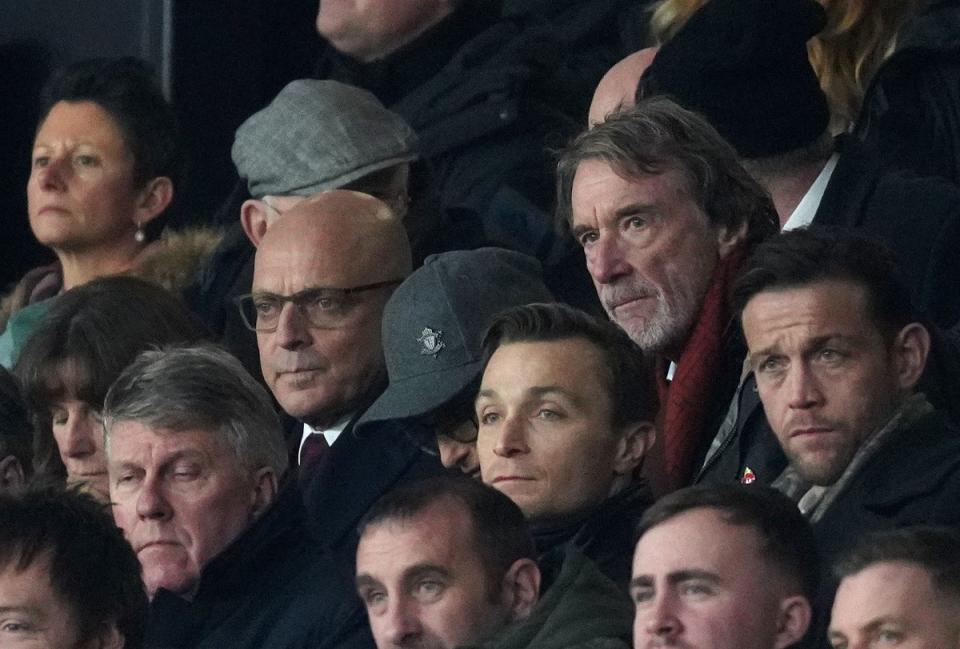
There is then the wider context of all this. Ratcliffe’s stake has ensured the Glazers have made an absolute fortune. Their strategy since buying the club has proved a resounding success on its own terms. They contributed only around £265m of the original purchase price of £790m in 2005 and already got that back years ago. They have now got £805m in exchange for just 25 per cent, all while the club has paid out £1bn interest.
It is an indictment of both the economic system and the game’s previous regulations that this has been allowed to happen. This club, it should never be forgotten, is a community institution and a crucial piece of UK cultural heritage that had been debt-free since 1931. It is similarly instructive that the Premier League has since moved to limit such leveraged buyouts.
And yet, despite such astounding figures, United are in a situation where relatively basic technical planning is required. One man, who has faced his own criticisms for “greenwashing” as a petrochemicals billionaire, is being hailed as a saviour.
As a cultural institution, this was preferable to the alternative: a great club potentially being politically used by an autocratic state.
That is where comparisons with City this week will stop.
The derby itself, however, might well show how far is needed to go.

 Yahoo Sport
Yahoo Sport 



































































